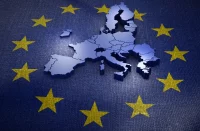Vladimir TIMAKOV(Russia)
Conventional wisdom says that the traditional Western values are democracy, humanism, tolerance and human rights. Against that background, Hitler’s Third Reich looks like a strange mutation, an evolutionary deviation that could not have been predicted.
Alexei Arbatov, a ideologue of pseudo-right Yabloko party, expresses surprise about that in a way that is rather typical of a modern Russian intellectual: “What country has a better claim to European status than Italy—the second cradle of European civilization after Greece? Or Germany—the center of European history for an entire millennium? What happened to their European values when Fascism was born in Italy, when Fascism reached its monstrous apotheosis in Germany…?” The author is forced to give an unconvincing answer to this fateful question of Westernism: “It has to do not with values but with politics…of well-defined groups.” (A. Arbatov, The Security Equation, Moscow, 2010, in Russian])
But the politics of well defined groups should have well defined origins, shouldn’t it? Can politics that deviates far from popular values receive popular support? Especially since Fascism in the 20s and 30s was not confined to Italy and Germany. At that time, ethnocentric dictatorships prevailed in Spain, Portugal, Hungary, Poland, Estonia, Slovakia and Croatia—across virtually the entire European continent! It could not have sprouted so profusely without fertile soil.
In my opinion, tolerance and humanism are values of the new, vanquished West. Before 1945 they huddled at the periphery of European consciousness just as Western civilization acquired democracy relatively late. Since Charlemagne’s time, Europeans have focused their attention on other ideals—the ones that Hitler put into their most concentrated and acute form.
The traditional Western values are a cultural superiority complex, intolerance towards other peoples and values, and expansionism, which is decidedly consumerist in nature. While the remnants of this ideology are still evident, before 1945 they absolutely dominated political practice in the West. A messianic quest for world domination and a desire for enrichment at the expense of the surrounding world, and certainly not concern for human rights, were the main engines of the West’s dizzying progress.
A skeptic is entitled to say that the entire history of mankind in both the West and the East is replete with bloody conquests. But no two bloody conquests are alike. Every nation glorifies landmark historical events and turns them into archetypal national myths. The Battle of Kulikovo is a point of honor for Russians. For Arabs, it is the exploits of Saladin, and for the Jews it is the defense of Masada (which the Israeli intelligence service is named after). Notice that the cultural values of non-Western nations have led to the glorification of defensive wars against foreign invaders. (The Chinese Ballad of Mulan, whose heroine was brought to world attention by the Disney cartoon, falls into that category. The legendary Chinese girl defended the entire country against invading Huns.) It is only in the West that an aggressive war served as the basis for a heroic myth—the Crusades.
The Crusades showed the world that Western civilization, which grew out of a single Christian ideology, had come of age. This was the debut of a new society—an aggressive and self-confident, adventurous and eager, purposeful and intolerant society that found sacred justification for genocide and plunder. It is important to emphasize that in contrast to the conquests of Hannibal, Darius, Alexander, Genghis Khan or Tamerlane (and thousands of others) the Crusades were not initiated by individual leaders. This war of conquest grew out of the will of the people and was sanctified by the Catholic Church. Thus, it was based on values, not politics!
Jerusalem and Constantinople as conquered by the Crusaders may well be considered the prototypes of the future Khatyn and Auschwitz (see the textbook Les Croisades. Mythe et realite de la guerre sainte, by Pierre Willemart). The triumph of the “soldiers of Christ” in 1099 was celebrated by the wholesale burning of Jews in the Jerusalem synagogue (a rehearsal for the Holocaust?) and the massacre of unarmed Muslims on the roof of the Al-Aqsa Mosque. Non-Western Christians—Orthodox and Armenian—met a no less horrible fate. The Jerusalem Patriarch was forced to flee the city to escape his “brothers in faith.” The fate of the Armenians conquered by the knights is eloquently described by the medieval chronicler Matthew of Edessa: “The Franks slaughtered innocent babes out of hatred for their parents…many unspeakable sufferings were inflicted only out of a selfish desire to possess the wealth of the Armenians.”
Enthralled as we are by Eurocentric mythology, we have become accustomed to considering Westerners as invariably more humane than, say, Mongols or Muslims. That is a totally unfair conclusion. When Saladin took Jerusalem back from Baron Balian of Ibelin in 1187, he not only spared the lives of all (!) of the Franks captured but personally, together with his brother al-Adil, bought 1500 prisoners from his paladins and set them free. The contrast between the way the Western and the “barbarian” peoples conducted themselves was just as obvious during World War II. Whereas the Nazis carried out blatant genocide in occupied Soviet territory, Stalin’s government sent almost two million tonnes of grain to Eastern Europe in 1946 to aid its defeated enemies. No matter how we try to explain this contrast in political terms, in the final analysis it comes down to a fundamental difference in values.
The fundamental difference in values also explains the radical dissimilarity between Europe’s ethnographic map and that of other civilizations. Europe is the only continent on the planet dominated by mononational states. It is not difficult to see the reason for that. As the outstanding Russian scholar V. V. Kozhinov aptly put it, if Russia is the “prison of peoples,” then Europe should be considered the “graveyard of peoples.” Indeed, after the Crusaders’ cultural missionary activities, the Labe Slavs and Prussians, the Britons and Picts (remember the R.L. Stevenson’s poem you studied in school about the last surviving heather ale brewers?) were wiped from the face of the earth. The Mohicans and Incas in America and the Tasmanians in Oceania shared their fate a few centuries later. The Hitler and Rosenberg plans for genocide were hardly innovations in Western European culture. On the contrary, it was common practice; the industrial age just put it on rails.
Vladimir Timakov is the Russian political activist from Tula, a provincial center 200 km to the south from Moscow.
Source: New Eastern Outlook














Comments